Happy New Year! From the time I write this to the moment it lands in your mailbox, millions of people will have already broken at least two of their New Year’s resolutions. And chances are, Congress will have forked over another bag of billions to some segment of big corporate America.
It’s sickening that failing companies, who’ve been at least partly derailed by poor management and greed, get what amounts to a “do-over.” I do understand, however, that the ensuing impact on the economy could be much worse if nothing is done. But it’s still sickening—and it’s been causing me to rethink some of the shopping choices I’ve been making.
For instance, when my wife and I had both come home from an unusually long day at work, we decided to run out and grab a bite to eat. We were leaning toward The Olive Garden when we both said, “You know what, let’s go to the local family-owned diner and give them some business … they’re probably struggling with the way things are.” I made the same conscious decision when I needed an oil change and new tires for my car this fall, foregoing the cheaper Farm & Fleet (regional chain) to give Steve at Harold’s Muffler some business.
I can’t help but wonder if other consumers are shifting their way of thinking in a similar direction. In tough economic times, consumers naturally start shopping for deals. But some tend to hunker down and adopt a more communal mentality.
Case in point: I recently read in the Chicago Tribune that two neighborhoods in Milwaukee were exploring the possibility of printing their own money to be used at local businesses. The idea is to encourage consumers to shop independent, local vendors. You can Google “local currencies” to learn more about this practice, which was widely used during The Great Depression.
Monetary incentives are often used to encourage the use of local currencies. For example, if you brought $100 to your community’s “treasurer,” he might give you $110 worth of local currency.
But I think there’s a larger dynamic at play. Main Street is incensed with Wall Street, and consumers have had it with big business. How do you capitalize?
Most leading dealers are already good at this, but now more than ever you have to put a face to your business. Make the consumer’s connection to your business a personal, emotional one. The clearer you make it that you represent Main Street, as opposed to Wall Street, the better.
Become visible as the owner. Put yourself in your radio and TV commercials, on your website, or in your newspaper ads and direct mail pieces. Get involved in the community. Talk to your local church, school, civic groups, etc. about donating your time, expertise or even equipment.
Set some time aside this off-season to call your best customers. Ask them how they’re weathering the economic storm. Personally invite them to your spring open house. Remind them that you’re there to help them—whether they need a new mower, parts and/or service for their existing one … whatever. Show them you care.
The bottom line is this: Tout your Main Street status so when your customers look you in the eye they’ll know, “He’s one of us.” If your business fails, you’re not going to get a $210 million severance package, along with the opportunity to go run another failing company like Chrysler’s Robert Nardelli got to do after “resigning” from Home Depot in 2007.
Do right by your Main Street customers—and they’ll do right by you.

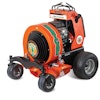

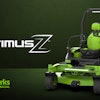


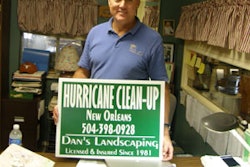

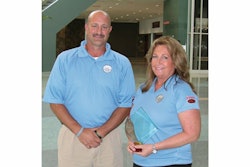









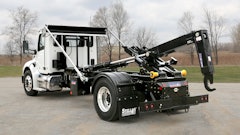
![Gravely Pro Turn Mach One My23 Dsc03139 Edit 1200x800 5b2df79[1]](https://img.greenindustrypros.com/mindful/acbm/workspaces/default/uploads/2025/10/gravely-pro-turn-mach-one-my23-dsc03139-edit-1200x800-5b2df791.BucBnDoN22.jpg?ar=16%3A9&auto=format%2Ccompress&fit=crop&h=135&q=70&w=240)

